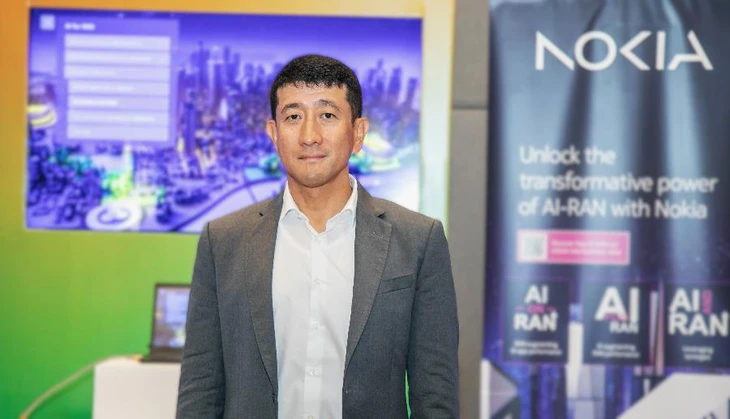
Mr. Hiro Miura, Regional Director of Southeast Asia, Mobile Networks APAC, Nokia - Photo: DNCC
Digital transformation is reshaping how cities anticipate, manage and respond to this challenge.
The Asia- Pacific region alone recorded more than 140 disasters in 2023, causing estimated damage of up to 45 billion USD.
In Vietnam, storms, floods and landslides remain common hazards. In neighboring Myanmar and the Philippines, natural disasters cause economic losses equivalent to 6% and 5% of GDP each year, respectively.
This article analyzes how 5G technology can support Vietnam's security and rescue agencies to be more proactive in forecasting, preventing and improving national risk management capacity.
Public safety bottlenecks
For decades, emergency response forces have relied on traditional telecommunications infrastructure – which is showing clear limitations given the scale and speed of today's disasters.
Vietnam's national adaptation plan also emphasizes the urgent need to upgrade surveillance systems while enhancing existing infrastructure, and 5G is seen as the "key" to this fundamental shift.
Tools such as IoT sensors, AI data analytics, and intelligent early warning systems can detect risks at an early stage, helping authorities to respond more quickly and accurately.
The transition to 5G networks will usher in a new era for public safety.
The table below illustrates the difference between how Vietnam's public safety system operates today and how it will operate in a 5G-enabled environment.
From reactive to proactive: The public safety system in Vietnam:
Aspect | Old system (previous) | 5G system (after conversion) |
Combination | Separate organs, separate responses | Real-time multi-agency integration (push-to- video , online positioning) |
Situational awareness | Manual, delayed updates | Live image transmission, AI analysis, drone/robot support in dangerous areas. |
Network reliability | Trade networks overloaded in crisis | Priority access for rescue forces, multicast/broadcast warning |
Reaction model | Passive (react only after an incident occurs) | Proactive (predict, prevent, and coordinate faster) |
Seamless cross-sector collaboration
When multiple forces—police, fire, medical, and rescue—are involved in responding to a scene, the ability to connect and interact instantly becomes vital.
5G technology breaks down those barriers by standardizing the communications platform, enabling services like push-to-talk, push-to-video, and real-time location, even in emergency situations.
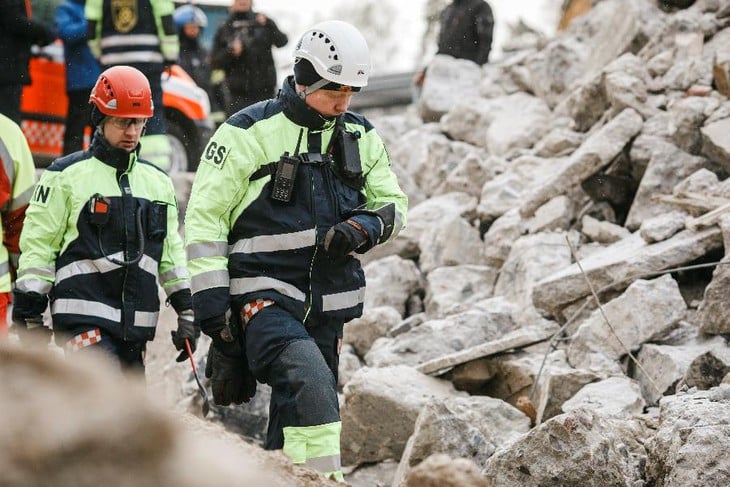
5G makes search and rescue more seamless and easier - Photo: DNCC
According to Kaleido Intelligence analysis, Nokia is now the global leader in Private 5G - a platform that enables first responders to share data faster, coordinate more effectively and make better decisions in a crisis.
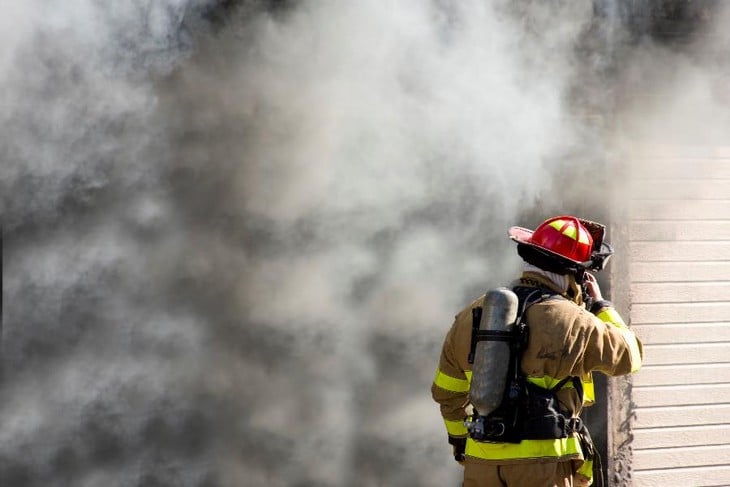
Inter-sectoral coordination in rescue will be more convenient - Photo: DNCC
One of the big breakthroughs of 5G technology is the ability to support autonomous devices such as drones and robots operating in dangerous or hard-to-reach areas.
- In disaster areas , drones can fly to survey the scene, record damage or search for survivors.
- At the scene of a fire or collapse, ground robots can check the structure for safety before humans approach.
"Drone-in-a-box" technology allows drones to be launched remotely, survey the situation and transmit important data quickly.
A Nokia youtube video highlights the key challenge in this area.
Nokia has launched the RXRM (Real-time eXtended Reality Multimedia) solution – allowing 360-degree video transmission with low latency and bandwidth savings while still ensuring image quality.
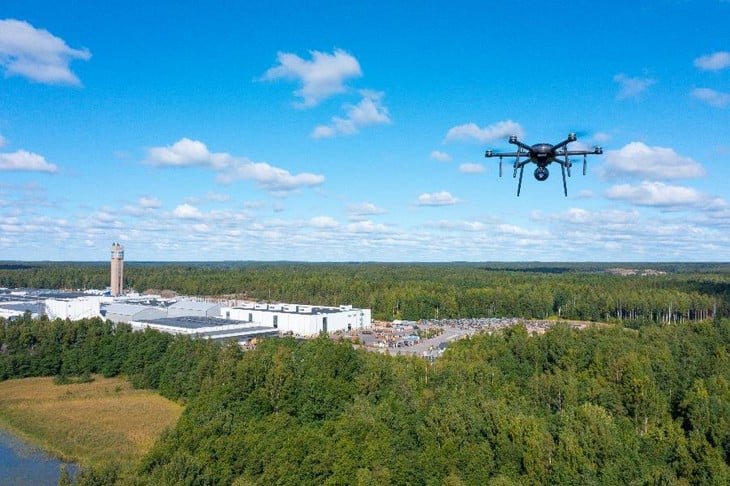
"Drone-in-a-box" technology allows for fast remote data transmission - Photo: DNCC
Stay connected in an emergency
During large-scale disasters, commercial mobile networks are often overloaded, causing communication disruptions between rescue forces.
5G helps solve this problem by prioritizing access for emergency communication channels, ensuring the network remains smooth and stable for emergency response agencies even in severe crisis conditions.
The table below illustrates how 5G deployment can create systemic shifts in emergency response and management.
Potential Outcomes of 5G for Public Safety:
Areas of impact | Current situation | Potential when applying 5G |
Mortality rate due to natural disasters | ~500 deaths/missing people per year (Statistics 2023–2024) | Early detection, rapid evacuation, automatic rescue. |
Economic damage | Loss of 0.7-1.5% GDP/year | Smart monitoring and prevention help reduce losses. |
Time of reaction | Delays due to fragmented communication systems | Real-time situational awareness, prioritized access. |
Operating efficiency | Manual reporting and coverage limitations | Drone/robot applications, continuous connection |
Public safety | Vulnerable to increasingly severe storms and floods | Strong infrastructure ready for the future. |
Vietnam is still in the early stages of its 5G journey, but the technology's potential is clear.
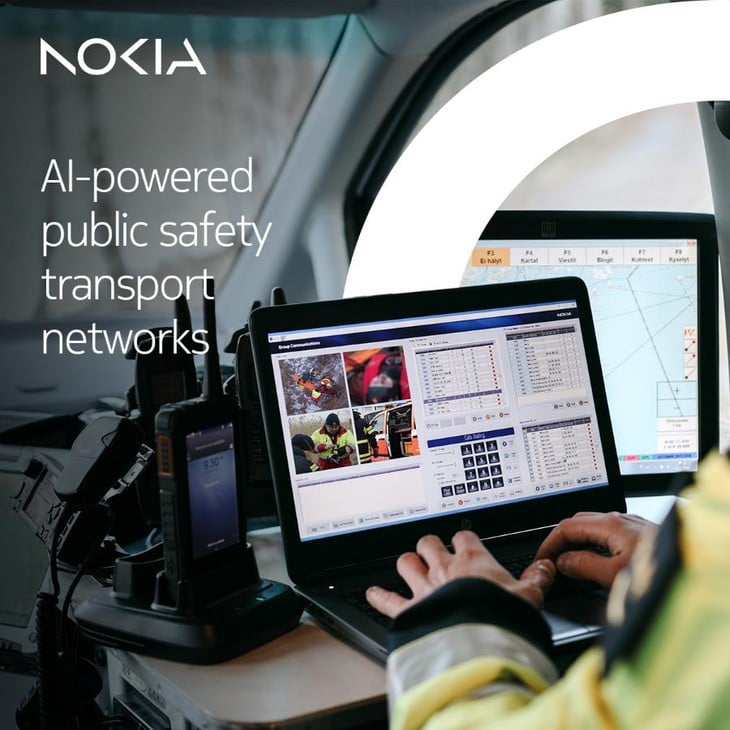
AI and 5G are among the important technologies in future development - Photo: DNCC
By investing in 5G today, law enforcement agencies can build a mission-critical communications platform that is robust, flexible, and future-ready, helping to shape a smart and sustainable public safety ecosystem.
TUONG KHANH
Source: https://tuoitre.vn/5g-mo-ra-ky-nguyen-moi-ung-pho-khung-hoang-tai-viet-nam-20251105155928021.htm


![[Photo] Prime Minister Pham Minh Chinh receives the delegation of the Semiconductor Manufacturing International (SEMI)](https://vphoto.vietnam.vn/thumb/1200x675/vietnam/resource/IMAGE/2025/11/06/1762434628831_dsc-0219-jpg.webp)
![[Photo] Closing of the 14th Conference of the 13th Party Central Committee](https://vphoto.vietnam.vn/thumb/1200x675/vietnam/resource/IMAGE/2025/11/06/1762404919012_a1-bnd-5975-5183-jpg.webp)











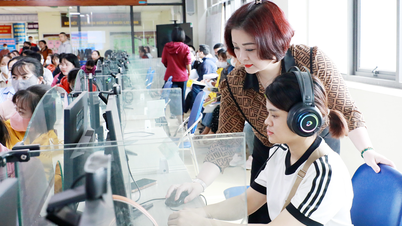











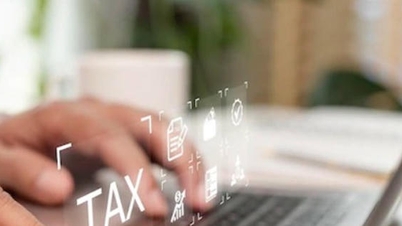








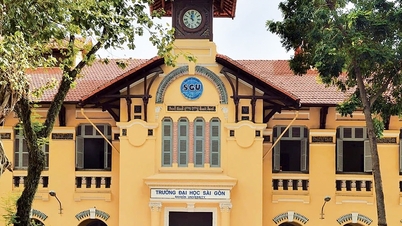

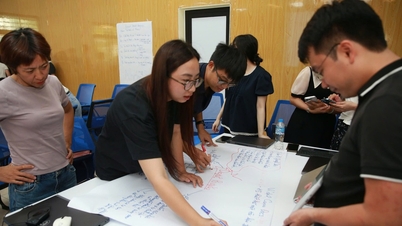






































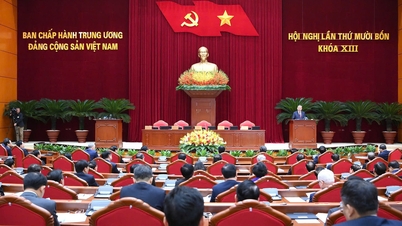

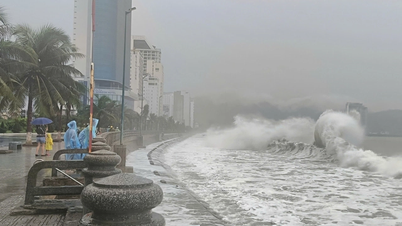
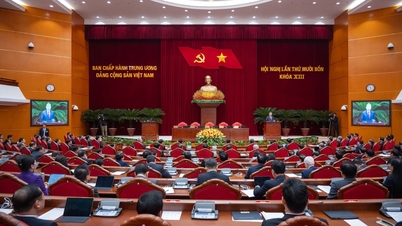









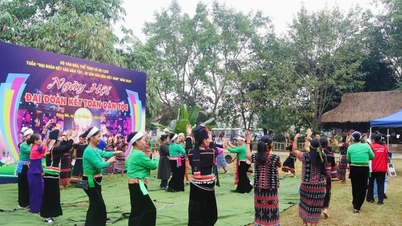






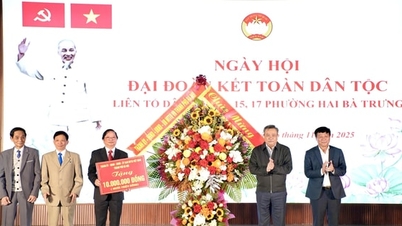


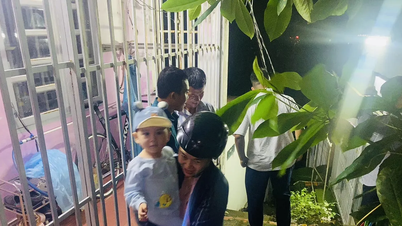














Comment (0)